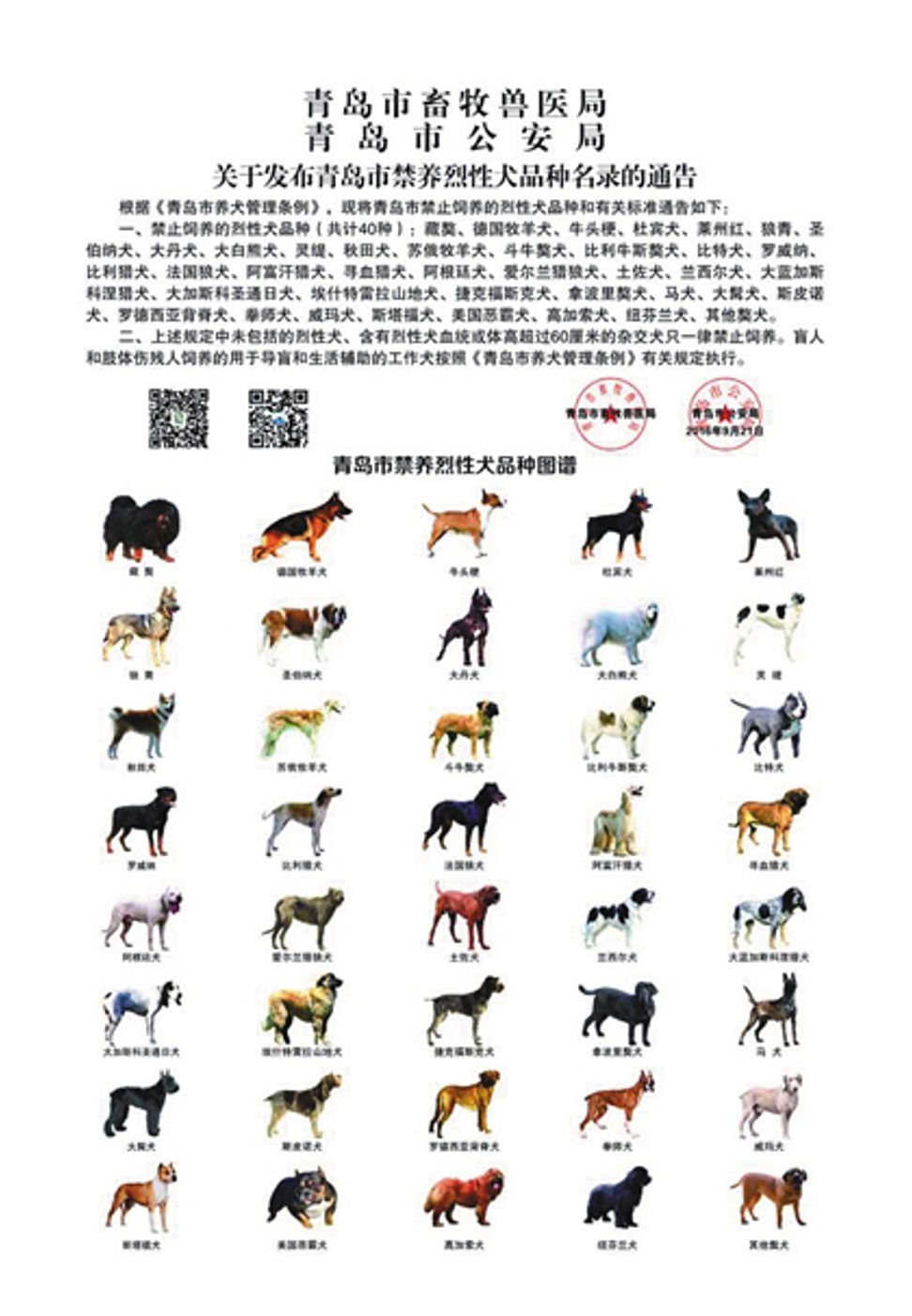
Chinese city introduces ‘one dog policy’ for households
Forty ‘dangerous breeds’ are banned outright, and violators of other regulations face stiff fines
An eastern Chinese city has introduced a “one dog” policy limiting households to one pet dog and banning dozens of dog breeds, with maximum fines of 2,000 yuan (US$60).
Qingdao, a port city in Shandong province, began implementing the new regulations on Thursday in four of the city’s districts, local media reported.
The restrictions, which require dogs to be registered for a one-time 400 yuan management fee, were introduced because the local government believed earlier regulations were not comprehensive and had unclear penalties.
“More and more residents have dogs, but it’s caused incidents of dogs disturbing or even injuring people,” the local public security bureau told The Beijing News. “It’s based on the approach taken by other cities, and underwent several discussions.”

Under the new regulations, dogs must be vaccinated for rabies and carry electronic identity devices, similar to resident identity cards, containing such information as the dog’s age, colour, variety, and their owners’ contact information.
Forty breeds deemed as dangerous by experts, including Tibetan mastiffs, have been banned outright.
Households that already have more than one registered dog that has been properly immunised will not be affected. There are also other exceptions to the regulations, including for guide dogs for the blind.
Violators will be subject to fines ranging from 500 yuan to 2,000 yuan, and repeat offenders will have their dogs impounded.
China had an estimated 100 million registered pets in 2015, with dogs making up nearly two thirds of the total.
But Qingdao’s move is the first time local governments have instituted “one dog, one household” policies.
Chengdu, the capital of Sichuan province, introduced similar regulations in 2009, and cities such as Harbin, Zhuhai, Changzhou, and Nanchang have followed suit. In Harbin, regulations additionally banned dogs over 70cm in length or 50cm in height.
Some stricter dog-related policies have caused a public outcry. In 2011, a policy prohibiting any residents in the city centre of Jiangmen, in Guangdong province from owning dogs – with officials threatening to impound and destroy violating animals – was overturned nine days later following a widespread backlash.
Fang Xiaolin, owner of two dogs in Chengdu, told Sixth Tone, a new website affiliated with Thepaper.cn in Shanghai, that she had to ask a friend to register one of her dogs for her.
“It’s kind of like the one-child policy that everyone has to follow,” she said, noting that the government eventually turns a blind eye.


